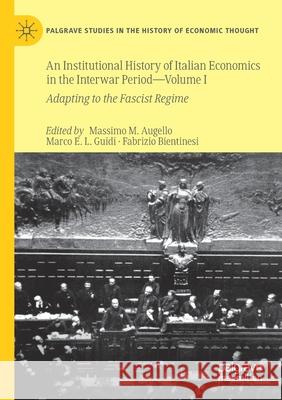An Institutional History of Italian Economics in the Interwar Period -- Volume I: Adapting to the Fascist Regime » książka
topmenu
An Institutional History of Italian Economics in the Interwar Period -- Volume I: Adapting to the Fascist Regime
ISBN-13: 9783030329822 / Angielski / Miękka / 2020 / 243 str.
An Institutional History of Italian Economics in the Interwar Period -- Volume I: Adapting to the Fascist Regime
ISBN-13: 9783030329822 / Angielski / Miękka / 2020 / 243 str.
cena 443,82
(netto: 422,69 VAT: 5%)
Najniższa cena z 30 dni: 385,52
(netto: 422,69 VAT: 5%)
Najniższa cena z 30 dni: 385,52
Termin realizacji zamówienia:
ok. 22 dni roboczych
Bez gwarancji dostawy przed świętami
ok. 22 dni roboczych
Bez gwarancji dostawy przed świętami
Darmowa dostawa!
Kategorie:
Kategorie BISAC:
Wydawca:
Palgrave MacMillan
Seria wydawnicza:
Język:
Angielski
ISBN-13:
9783030329822
Rok wydania:
2020
Wydanie:
2019
Numer serii:
000472522
Ilość stron:
243
Waga:
0.34 kg
Wymiary:
21.01 x 14.81 x 1.5
Oprawa:
Miękka
Wolumenów:
01
Dodatkowe informacje:
Wydanie ilustrowane











